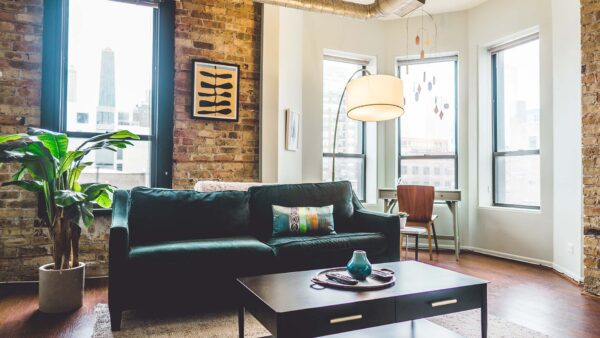An alarming number of renters in Canada have no tenants insurance policy, leaving them vulnerable to such perils as fire, water damage and theft, but also to financially devastating lawsuits and even potential homelessness during long periods of reconstruction. And yet tenants insurance is not only cheaper than most think, it can also save you money in the long term, and in some cases, keep you from being evicted.
What would you do if a fire ripped through your apartment building, destroying everything you own and leaving you without a place to live for two or three months as you wait for the building to be repaired? What if you had to find an entirely new home altogether?
While the vast majority of home owners have thought about such a scenario, a surprising number of renters in this country have chosen to turn a blind eye to the potential consequences of going without a tenants insurance policy – one that will cover you, and your belongings, should such a tragedy occur.
So let’s try to turn the tide on this one by looking at tenants insurance by the numbers, and the reasons why every renter should think about purchasing a policy today…
Over 50%: Proportion of Canadian renters who have no tenants insurance
This troubling statistic is compounded by the fact that a third haven’t even thought about it! Compare that with home insurance, which over 95% of homeowners have. And yet tenants insurance can be just as important, if not more so, considering many renters live in extremely close proximity with their neighbours, compounding potential perils like fire, water damage and theft.
So why do many renters either give it no thought or choose to go without a comprehensive insurance policy? The reasons people give to pollsters tend to be based on inaccurate assumptions:
Assumption #1: “My Landlord’s policy covers all damages and risks.”
Fact: Your landlord’s policy covers the structure of the building, not its contents. Your personal belongings are not covered, and perhaps more importantly, you are not covered for personal liability or for any unexpected expenses that may arise due to fire or water damage, such as temporary accommodation while reconstruction or repairs are carried out.
Assumption #2: “My neighbourhood is safe, so I don’t need it.”
Fact: Tenants insurance covers you for more than just theft. It covers you for any fire or water damage that may occur, personal liability should there be any accidents involving you or a guest, as well as any unexpected expenses that arise due to events beyond your control.
Assumption #3: “My possessions aren’t worth covering.”
Fact: Most people grossly underestimate the value of their possessions. It’s not just your laptop, tablet, TV and jewellery that needs to be replaced after a fire or break-in. It’s also all those sofas and chairs, beds and tables, linen and blankets, kitchen utensils, books, lamps, pictures etc. All these items can quickly add up to $20,000 or much more.
Assumption #4: “I can’t afford it.”
Fact: Tenants insurance is much less than a home insurance policy, mainly because you are not insuring the actual structure of the building itself. The average tenant insurance rate in Ontario is around $450 a year, while a home insurance policy can be 3 times that much. Plus, if you bundle your policy with your auto insurance, the resulting discount can make your tenants insurance practically free.
- $65,000: Average cost of damages in an apartment fire
- 25%: Proportion of residential fires that occur in apartments
A fire can start anywhere in an apartment building and quickly spread to your particular unit, and while this is basically your landlord’s problem to deal with on a grander scale, the resulting need for assessments and repairs to the building could leave you temporarily homeless as they rebuild and rewire the entire complex.
What’s more, you may still be on the hook for your monthly rent while these repairs are being carried out, depending what kind of lease you have.
Tenant insurance not only covers all the stuff you might have lost in the fire, but also some unexpected expenses.
- Monthly rent on your uninhabitable apartment or cost of a short-term rental apartment or hotel room
- Cost of removing furniture from your home while repairs are completed
- Food costs associated with your displacement
- 125,000: Number of break-ins annually to rented apartments, which is the highest per household in Canada
- 248,000: Number of reported cases of theft of personal property
- 143,000: Number of reported cases of vandalism
Not all apartment buildings are equal when it comes to security, and none are completely immune to break-ins, vandalism, and theft in general.
That said, many people feel that they live minimalist lives, with very few possessions that are expensive enough to insure. “Certainly the deductible would be more than my laptop is worth,” is a common thought. But in most cases, a detailed inventory of their belongings would reveal a total value much higher than they expected.
Upwards of $3,700: The potential monthly cost of basic temporary accommodation in Toronto during the summer months
It’s not just a fire in your building that can lead you to find yourself displaced for months on end. Plumbing malfunctions, water damage, sewer backup and electrical problems are all potential structural problems that could find you without a place to live for a long period of time as assessments and repairs are carried out.
Unfortunately, not everyone has family or friends willing to put them up for months on end, especially if pets are involved.
Tenants insurance covers additional living expenses for just such a situation. It can also cover moving costs if furniture must be removed during reconstruction, as well as some extra food costs (eating out is expensive) if your temporary accommodations don’t include a kitchen.
Upwards of $1 million: The cost of a potential liability claim against you
Many renters tend to overlook the potential for personal liability lawsuits when contemplating the idea of purchasing tenants insurance. Most people are just thinking about how much it would cost to replace their stuff should a fire occur, or if their place gets robbed.
But it’s just this sort of lawsuit that can leave you utterly destroyed financially, if you are ultimately held responsible for injury to someone else, or damage to their stuff. Even if the damage caused was unintentional.
A dishwasher or toilet clogs up or starts leaking unnoticed, letting water trickle down to the apartment below. A grease fire in the kitchen causes smoke damage to both your apartment and that of a neighbour. You may be sued by both that neighbour AND your landlord.
The reality of a little known risk called subrogation:
Yes, your landlord will certainly have insurance to pay for any structural damage to the building. And your neighbours could have insurance coverage too. But if the damage you caused is obviously your fault, their insurance companies just might come after you!
This is called subrogation. It is a legal process which allows insurance companies to recover a significant portion of the money they pay out in claims.
If you have liability coverage, the insurance companies will seek reimbursement for the cost of the claim from your insurance company.
If you don’t have insurance, they could come after you personally.
Ask your broker to review your lease before you sign:
It is extremely important that you completely understand the terms of your lease, and what you could be liable for.
Perhaps you are responsible for the clearing of snow, especially if you live in a basement or ground floor apartment. If a guest injures themselves after slipping on the front stoop, friend or not, you may be sued.
Tenants insurance covers you for the resulting settlement, the lawyer fees, and the court costs.
So get your broker to look over your lease to make sure any coverage you purchase sufficiently protects you in the case of a liability claim. If you have maximum coverage of $1 million, and get sued for more than that, you will be on the hook for the rest.
Get a tenant insurance quote in minutes.
$25-$55 a month: The cost of tenants insurance
The reality is that tenants insurance is relatively inexpensive…especially considering the potential costs of NOT getting it. In fact, if you already have auto insurance you can save 10-18% on that policy when you bundle it with a tenants insurance policy. So if you are already paying, say, $250 a month on your car insurance, a ten percent saving will pay for most of your new tenants insurance policy premium anyway.
5 ways tenants insurance can save you big time:
- It covers your belongings: Your stuff is worth more than you think…guaranteed.
- It covers liability: Say you inadvertently start a grease fire that causes smoke damage, or your toilet overflows and water damages a neighbouring apartment. You could be looking at a lawsuit instigated by your landlord or neighbour. Your policy can cover the settlement, court costs and your lawyer.
- It covers additional living expenses: If your building needs repairs after a fire, water damage or other loss covered by your policy, it will also cover the cost of a hotel until the damage is repaired, or until you find a new place to live.
- It builds your insurance history: If or when you someday buy a place of your own, your home insurance policy will be cheaper if you have built up a clean insurance history along the way.
- It can keep you from being kicked out of your home: Your landlord may someday come round asking for proof of insurance, threatening to evict you if you do not comply with the request.
7 ways to get the most out of tenants insurance:
- Bundle your tenants and auto insurance together through the same insurance provider. This can save you 10-18%.
- Set your deductible to something you can afford so that you aren’t reluctant to make a claim should an incident occur. Deductibles can range from $250 to $5,000.
- Keep an up-to-date inventory of your belongings, using a spreadsheet. Take pictures or video and keep receipts if possible. Make sure to include EVERYTHING you own, not just the more expensive stuff.
- “Schedule” the most important, and most irreplaceable, stuff like engagement rings, collectors items, family heirlooms and original art pieces. This is basically extra insurance which extends coverage beyond the limits of your standard tenants insurance policy.
- Make sure to account for any pets you may have. Not only can pets do damage to an apartment, they can also leave you exposed to lawsuits should they injure someone.
- Choose a safe neighbourhood when searching for a new place to live. Insurance rates are partially calculated according to postal codes. The less crime a certain area endures, the cheaper your insurance will be.
- Before you sign that lease, make sure a fire hydrant is sitting within 300 metres from the place you are renting. Easy access for the fire department is essential to cheaper insurance.
Tenants insurance recommendations
Let’s simplify this by breaking it down into some standard recommendations:
Recommended policy limits:
- Minimum $30,000 for contents – basically your belongings
- Minimum $1 million for personal liability (we recommend $2 million)
- Minimum $3,000 for additional living expenses
Recommended deductible:
- $500 or $1,000
Remember, the higher the deductible, the lower the premium. But a potentially unaffordable deductible can make your policy basically useless to you as you won’t have the money available when something unexpected actually does happen to you.
Recommended policy type:
- All-risk or comprehensive
It’s best to get an “all-risk” or comprehensive policy as opposed to a “named perils”, or basic, insurance policy. A comprehensive policy offers the greatest protection for you and your stuff, whereas a basic policy only covers certain specified items from specified perils, such as fire and theft.
The more comprehensive the policy, the better it protects you, though that does mean it will come with slightly higher premiums.
Recommended additional coverage:
- Sewer backup
- Groundwater?
- Overland flood?
You might also want to look into some additional coverage for sewer backup, groundwater and overland flooding, especially if you are renting a basement apartment. This will cover you for damage caused by the backup of sewers and drains, water that seaps through the foundation of the building, the overflow of lakes and rivers, and the melting of snow and heavy rain. In a high-rise you can forget about groundwater and overland flood, but sewer back-up is still a must.
Who do you call for more information?
Don’t get caught out in the cold when the unexpected comes barging through your apartment door. Call Mitch today at 1-800-731-2228, and we’ll help you find tenants insurance that is right for you, and your monthly budget!
Looking for tenant insurance?
Speak with a Mitch Insurance broker today to get a quote on Ontario tenant insurance.
Call now
1-800-731-2228







